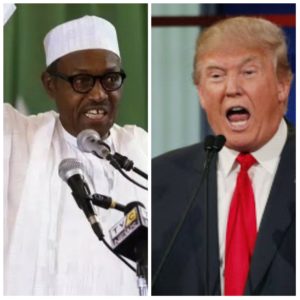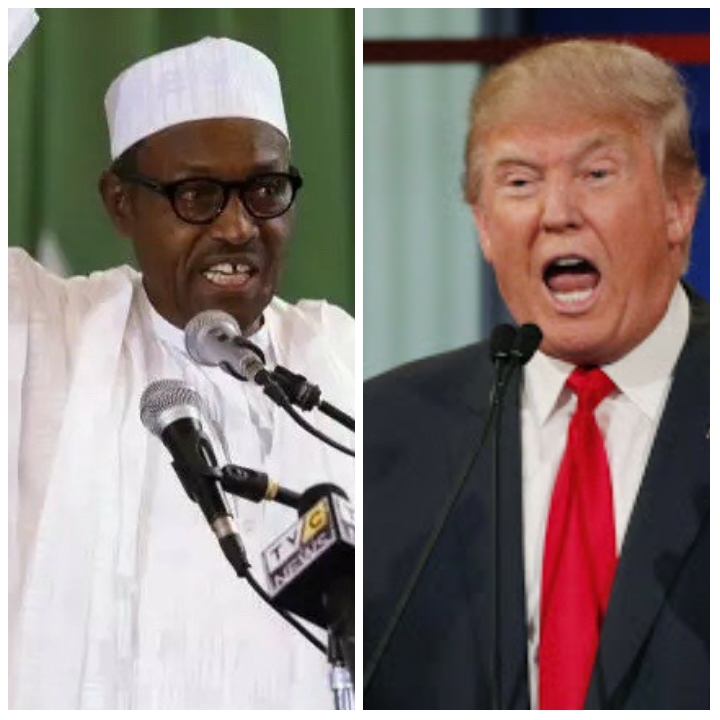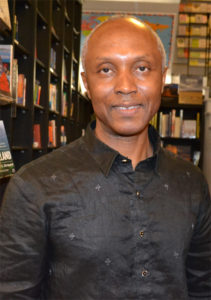 On November 8, 2016 Americans elected Donald Trump as their 45th president. By the time you’re reading this, Mr. Trump would have named all his nominees for leadership of various government departments. The president-elect, who will be inaugurated on January 20, 2017, has not only unveiled the lineup of his cabinet, he has also specified each nominee’s portfolio. In addition, since his improbable election, Mr. Trump has laid out some of his top policy priorities.
On November 8, 2016 Americans elected Donald Trump as their 45th president. By the time you’re reading this, Mr. Trump would have named all his nominees for leadership of various government departments. The president-elect, who will be inaugurated on January 20, 2017, has not only unveiled the lineup of his cabinet, he has also specified each nominee’s portfolio. In addition, since his improbable election, Mr. Trump has laid out some of his top policy priorities. In effect, with more than a month to go to his formal investiture, the president-elect has placed himself smack in the middle of Americans’ conversations about vexed issues, from job creation to immigration. For example, he proposes to use a cocktail of tax cuts and deregulation to, he hopes, revamp domestic investment and boost job creation. Whether one agrees with his policy is one question. For me, what’s more pertinent is this: that we have a guy who has a particular vision about the direction his country ought to be going, and he’s playing his policy card in an open manner.
Yes, students of Mr. Trump’s political emergence and evolution may still marvel at his defiance of all kinds of odds, but the president-elect is not, at core, a mystery. His cabinet picks—studded with millionaires and billionaires with well-known, often controversial, positions—as well as his policy pronouncements are a measure of the Trumpian era to come, indeed a compass of the direction of Mr. Trump’s statecraft.
Yet, when Trump, a real estate businessman and showman, first announced his bid for the US Presidency, some of America’s most respected pundits had waved him off. They saw him as a long shot, in fact as a man who’d carried an absurd personal grudge—his evidence-free contention that President Barack Obama was an unqualified alien in the White House—into the public arena.
But enough about Mr. Trump, for my focus is on President Muhammadu Buhari, his relation to time and his apparent conception of leadership.
In June 2015, approximately one month after Mr. Buhari’s inauguration, I wrote a piece that bore the title, “Buhari’s Disappearing Presidency”. The opening line read: “President Muhammadu Buhari is dangerously close to leaving Nigerians disillusioned. Forget about his failure (as at this writing) to announce his cabinet, bad as it is. For me, the deeper disappointment lies in the near-absence of the president’s voice from the national conversation.”
I continued: “Let’s begin, however, with the least important element of Mr. Buhari’s so far lack-luster Presidency. It’s approximately three months since Nigerians voted for Mr. Buhari, on his fourth try, to be their president. By any objective measure, three months is more than enough time for a man who sought power with a certain persistence to figure out his cabinet.
“The president’s explanation for his tardiness in unveiling a cabinet is two-fold. One is that his predecessor, President Goodluck Jonathan, had been less than fully cooperative with his transition team. The second: that he wants a thorough background check done on potential ministers to save himself the chore of firing ministers shortly after nominating them.”
I wrote further: “Leadership involves a measure of deliberation, prudence and pragmatism. Yet, even when we allow for Mr. Buhari’s official explanation, the grand scale of public expectation, and the intractability of intra-party squabbles, one insists that the president’s snail pace is troubling. It has left some of his most fervent fans scratching their heads, scrambling for answers…
“That Mr. Buhari, a serial seeker of the Nigerian presidency, has squandered three months since his election, a month since his inauguration, without naming his cabinet, points, quite simply, to a level of unpreparedness. And if our brand new president is unprepared in personnel matters, how is he to tackle the weightier issues of unemployment, infrastructural dilapidation, terrorism, a shambolic healthcare system, educational crisis, and electric power woes?”
Finally, on the last day of September 2015, Mr. Buhari released the first batch of his ministerial nominees. In October 2015, I wrote a column captioned, “Buhari And The Enemy Called Time”. I stated, “Last week, when he finally unveiled a partial list of his proposed cabinet, President Muhammadu Buhari also revealed—even if inadvertently—that one of his biggest enemies bears the name ‘Time.’” In an Independence Day broadcast to Nigerians, Mr. Buhari defended the inordinate length of time it took him to unveil his ministerial nominees. His government, he said, “sets out to do things methodically and properly.”
It was sheer nonsense, a rhetorical bandage meant to mask a simple, deep-rooted disease: absence of preparation for the challenge of leadership. As one well suspected, Mr. Buhari’s indefensible tardiness was a symptom of a broader crisis: an inability to articulate a vision for Nigeria. The obsession with blaming his government’s inertia on the tragic choices made by former President Goodluck Jonathan is no substitute for thoughtful governance.
In that October, 2015 speech, a pedantic President Buhari had told Nigerians: “Impatience is not a virtue. Order is more vital than speed. Careful and deliberate decisions after consultations get far better results. And better results for our country is what the APC government for Change is all about.’’
Meanwhile, closing in on the second anniversary of his rule, Nigerians have seen few “careful and deliberate decisions,” but a miasma of disastrous decisions. Like the president, most ministers seem to have adopted the posture that silence is a virtue. Think about it: when was the last time you heard a substantive policy statement from any of the ministers Mr. Buhari squandered six months to name?
Sometimes, on the rare occasion when the ministers or other senior officials of this government speak, one is left cold, cringing in embarrassment. Minister of Youth and Sports, Solomon Dalung, has emerged as one of the most notorious offenders.
Nigerians won’t soon forget how the Buhari administration let down the Nigerian contingent to the Rio Olympics. The contingent’s gear did not arrive until the games were more than halfway through. Our dispirited football players, the cream of our contingent, had to fall back on the philanthropy of a Japanese doctor who recognized and rewarded their gallantry. In many other countries, the sports minister would have resigned or being drummed out of his post. But not in Nigeria: where presidents hold their cabinet to the lowest possible expectations.
Having survived the Rio fiasco, Mr. Dalung felt entitled to commit grander faux pas. Nigeria’s female football team, the Falcons, recently won the African Women Cup of Nations (AWCON) in Cameroon. The victors deserved to be feted, paid their financial entitlement, and treated like the heroines they are. Instead, they were largely ignored, until they began to bicker.
How did Mr. Dalung explain his ministry’s delinquency? He told reporters that the Federal Government had not expected the Super Falcons to win! It was as if, by working hard, playing their hearts out, and earning a continental trophy, our women had betrayed their country, acted in a most unNigerian manner. Mr. Dalung’s Nigeria is one where we wobble and fumble and pray our way into mediocrity.
It’s a scandal that Mr. Buhari has not seen fit to rusticate the sports minister. Instead, Mr. Dalung—who should have remained silent instead of voicing folly—has survived to declare to reporters that his statement was taken out of context. Which assertion is fine enough, one imagines, for an administration that has no context for excellence, vision and seriousness.
Please follow me on twitter @okeyndibe








